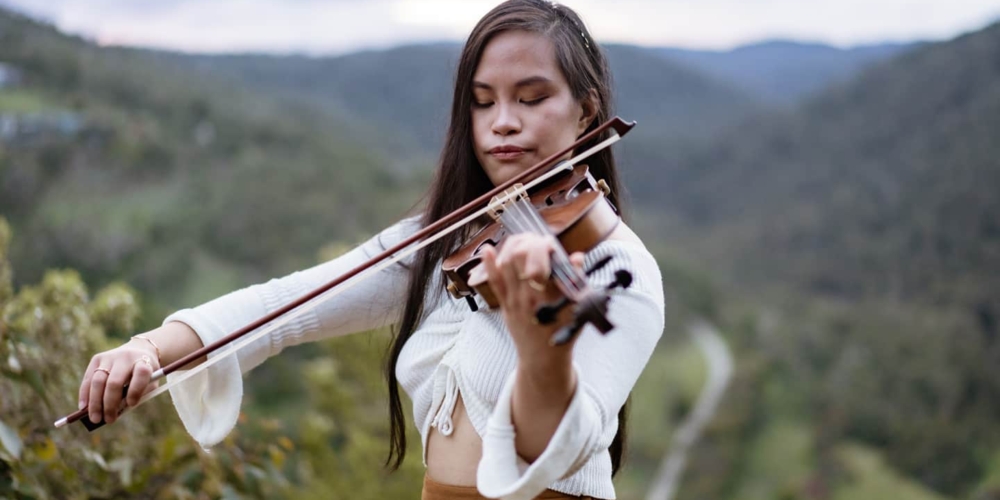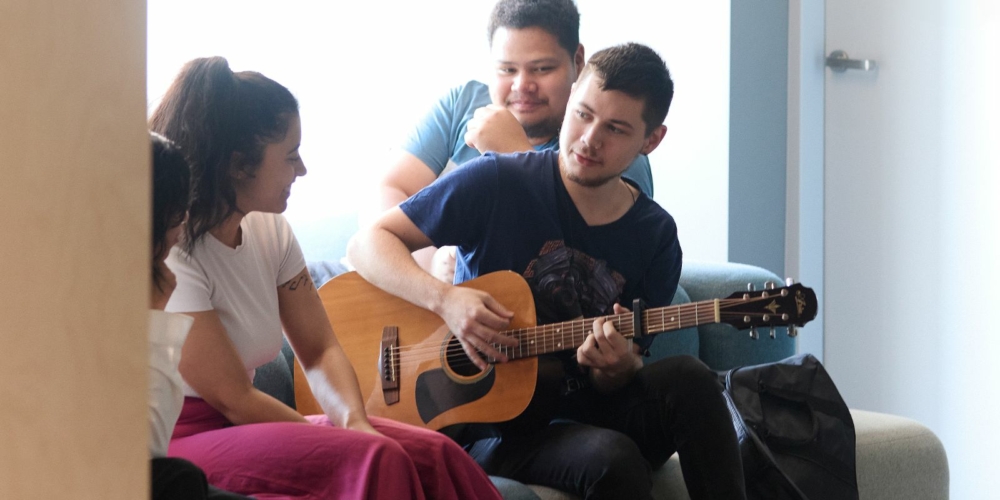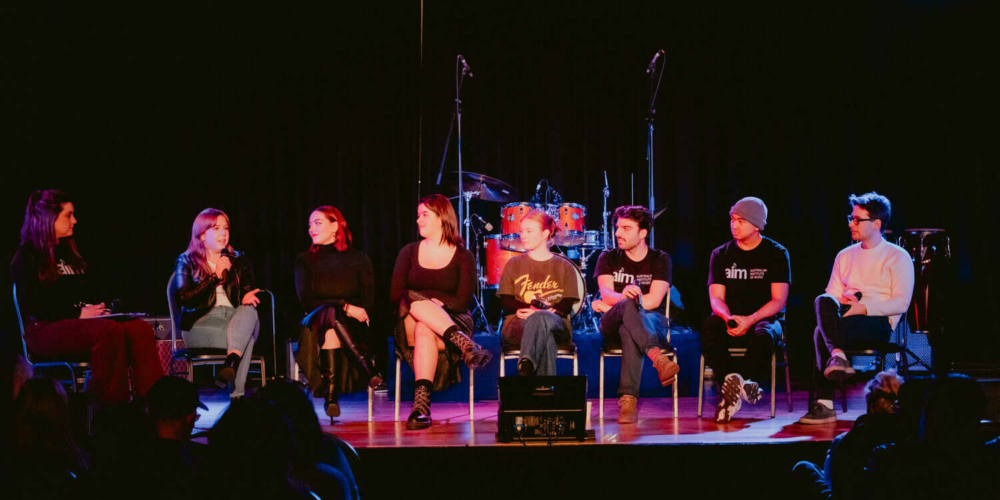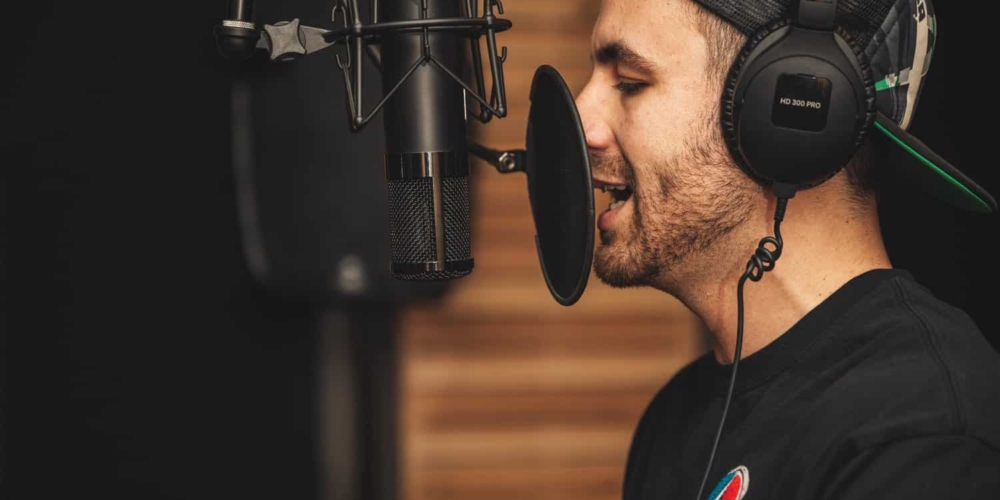AIM student Mae Udarbe is a composer, music educator and accomplished musician in her own right who has deftly applied her talents to everything from game sound design to musical theatre over her career. We spoke to Mae about her musical storyline and her path to discovering the “musical dexterity” needed to succeed in her Bachelor of Music (Composition) course, where she is focusing on game and interactive composition.
How has your relationship with your creative work changed over time?
Mae: I began my musical journey knowing music as a fairly rigid idea. My teacher would give me songs and I would learn them within a short timeframe and present them. Later, I came back as a singer/songwriter and was working much more creatively but I still had the idea of music as a rigid concept – I worked within set forms, arrangements and instrumentation and I was lucky enough to launch my debut EP with a large band including a small wind section.
Once I arrived at AIM, I was exposed to very new possibilities. I discovered the relationship between music and sound design, I discovered various production techniques, and a range of classical and contemporary compositional techniques. My style is now much broader, and my musical output reflects this – hence I have chosen to pursue game and interactive composition, a field which requires particular musical dexterity.
What kind of work have you been involved with, outside of AIM?
Mae: In 2016, I was involved in several EP productions as a vocalist and/or instrumentalist alongside the launch of my own EP Integrity in early 2017. During this time of my life, I was lucky enough to meet and collaborate with many talented musicians and explore music in a singer/songwriter and band setting.
In 2019, I was involved in a Centre Stage Geelong production of The Sound of Music, where I took on the role of Assistant Musical Director to Phil Kearney. This was a great learning experience for me in the theatre world as I had the opportunity to sit in on auditions, work with many talented performers during rehearsals and play percussion in an orchestral pit.
This year, I had the chance to assist Meghann O’Neill with interviews for the PC Powerplay magazine. It was quite interesting and enjoyable and I learned a lot from the process – I even learned a little on game reviewing. I am currently collaborating with game developers on projects as well as working on my own personal projects.
All throughout these creative ventures, I was and still am a music instructor of voice and more recently, violin. I find it rewarding passing on my knowledge and ever-growing experience to learners of all ages and creating a comfortable environment for them to express themselves through music.
How do you overcome challenges (writer’s block, etc)?
Mae: It may not be the most popular or commonly cited method, but for me, most challenges require facing the problem head on. When I face writers block – I continue to create, when I don’t understand a process – I research, ask questions or use trial and error until I understand it. When I need to use a skill I don’t have – I find a way to acquire that skill. I experience stress and sometimes feel very small at the beginning, but I come out the other side a better composer, producer, and musician.
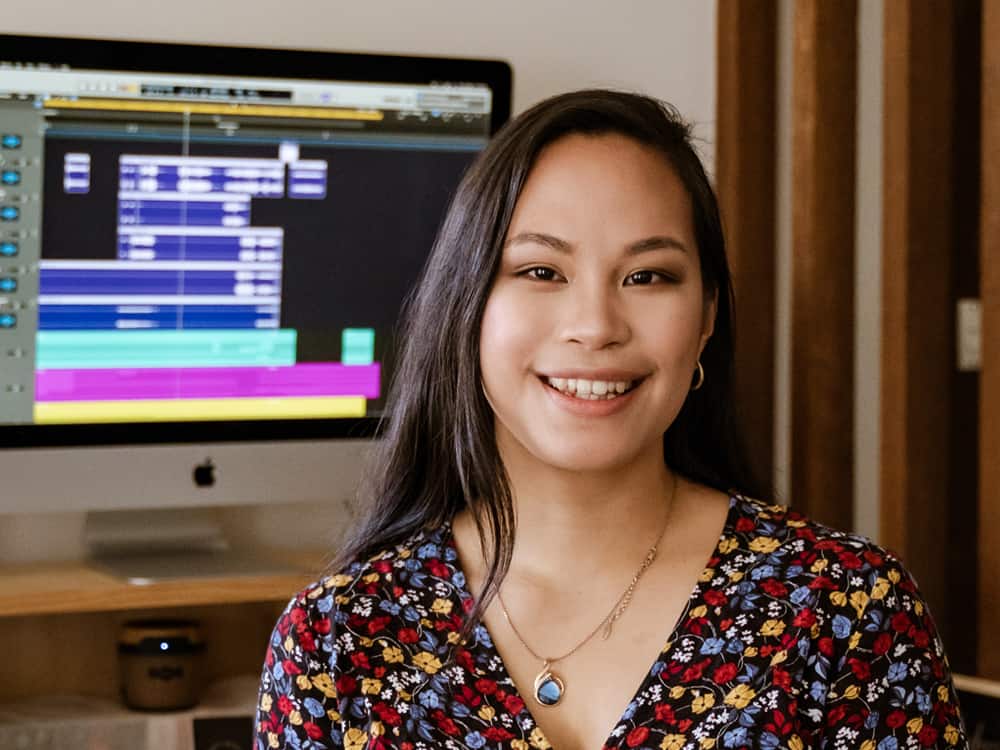
What are the most important things you’ve learned here at AIM?
Mae: Collaboration is important, it’s important to know what you’re good at and what you’re lacking in and find others who can augment your own skill-set and cover your deficiencies. Collaborating also exposes you to new ideas, new processes/workflows and can lead you into unique opportunities.
Organisation within both your own workflow and in your general working life is incredibly important – I am finding it especially important to save time and energy while working on projects alongside the responsibility of running my own business. Being a critic is easy, but receiving criticism is sometimes difficult, to be successful I think you need to be your own critic.
Who are your heroes and your favourite works of art?
Mae: I do not particularly have musical heroes – if anything, it’s the people immediately around me that I aspire to, my lecturers have probably shaped my current interests and musical style more than anyone else. Other local artists that I have made close friends with are a constant source of inspiration, encouragement and even nourishment when I need it most.
How do you want people to feel when they hear your music?
Mae: My own life has been a musical journey, from my early days playing electric organ, to my singer/songwriter and musical theatre career, and finally now arriving as a composer and musical educator. I have always projected this journey into my own music. I try to take my listeners on a journey of their own, but no one person will feel the same way, there is hopefully enough ambiguity to my music to allow that.
How has AIM transformed your relationship with music?
Mae: It has opened doors for me, it has allowed me to try different composition styles and decide on what works best for me. While I once found musical forms to be restrictive and I struggled to find a meaningful individual voice to express myself, by discovering new techniques, styles, arrangements and sound palettes I feel more inspired and equipped than ever.
Who would you like to shout out as fellow students or teachers that have had an impact?
Mae: I would particularly like to shout out two of my tutors – Vincent Giles and Meghann O’Neill. Coming into the course there were two fields I never thought I would particularly enjoy pursuing – sound design/composition and interactive composition, those now form the backbone of my output and I have Vince and Meg to thank. Vince pushed me particularly to explore possibilities beyond both what I thought I was capable of and also what I thought I
was interested in, and that is invaluable. Meg captured my imagination with her take on interactive composition, but she has also done more to advance my career and networks than anyone else I have worked or learned with, for that I am very grateful.

